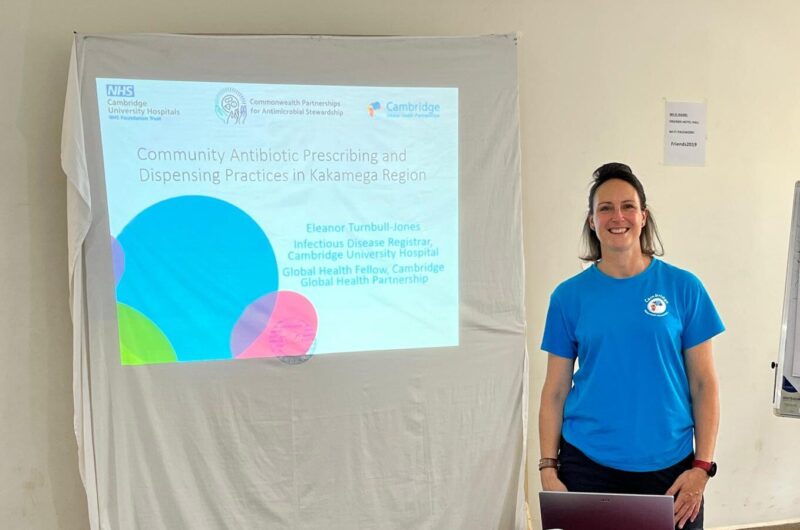By Eleanor Turnbull-Jones
Eleanor Turnbull-Jones is an Infectious Diseases Registrar at Addenbrooke’s Hospital and an East of England Global Health Fellow. As part of the Kakamega-Cambridge Health Partnership, she visited Kenya to gather and present data on the role of community pharmacies in the safe prescribing and monitoring of antibiotics.
“The Commonwealth Partnerships for Antimicrobial Stewardship (CwPAMS) project is part of the CGHP-supported Kakamega-Cambridge Health Partnership and is dedicated to improving antimicrobial stewardship in the Kakamega region of Kenya. I took part in a Community Pharmacy Project which aims to better understand prescribing practices and to use this data to guide future educational events and trainings to improve antimicrobial stewardship in the community.
We recruited 22 community pharmacies and over the course of five days we recorded data on each antibiotic dispensed – either from a prescription or an over-the-counter (OTC) sale. The data collected included the antibiotics dispensed, the details of the prescription, whether it was a prescription or OTC sale, and the indication. We collected the patient’s age and sex and asked if they’d had a previous course of antibiotics in the preceding month. We received ethical approval from Masinde Muliro University of Science and Technology (MMUST) and an in-country research license.
This is the first time that community pharmacy data on antibiotic prescribing has been collected in Kenya, possibly even in Sub Saharan Africa. CwPAMS were particularly interested in our data collection tool and requested approval to use it in six other African countries to do similar AMS surveys. Our project leads in Kenya have reported that there has been much interest from National Health departments on the data we have collected. We believe that this very useful data can guide the next steps in improving AMS in the region.
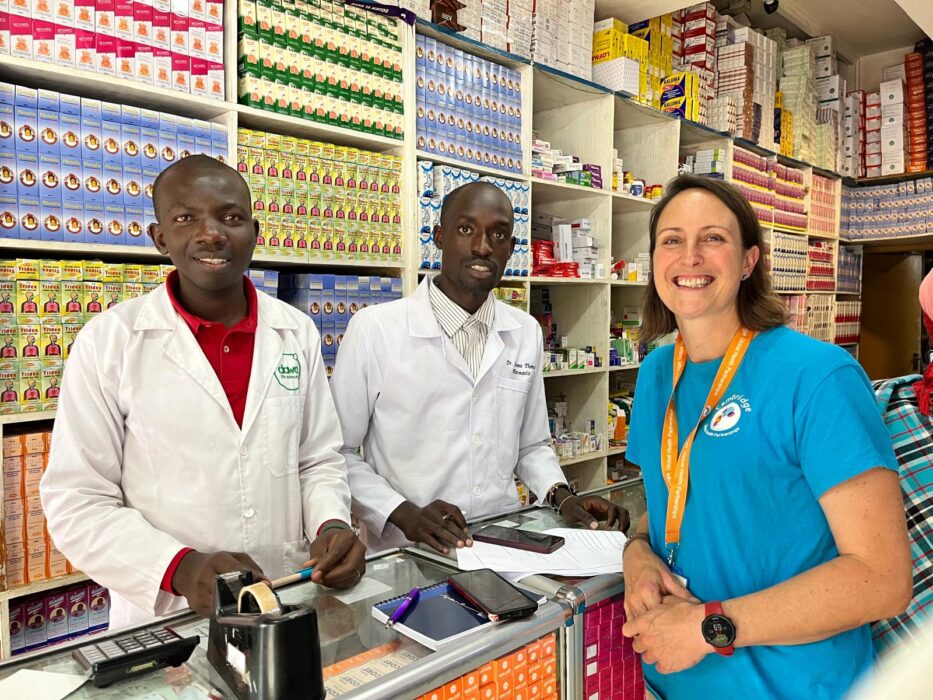
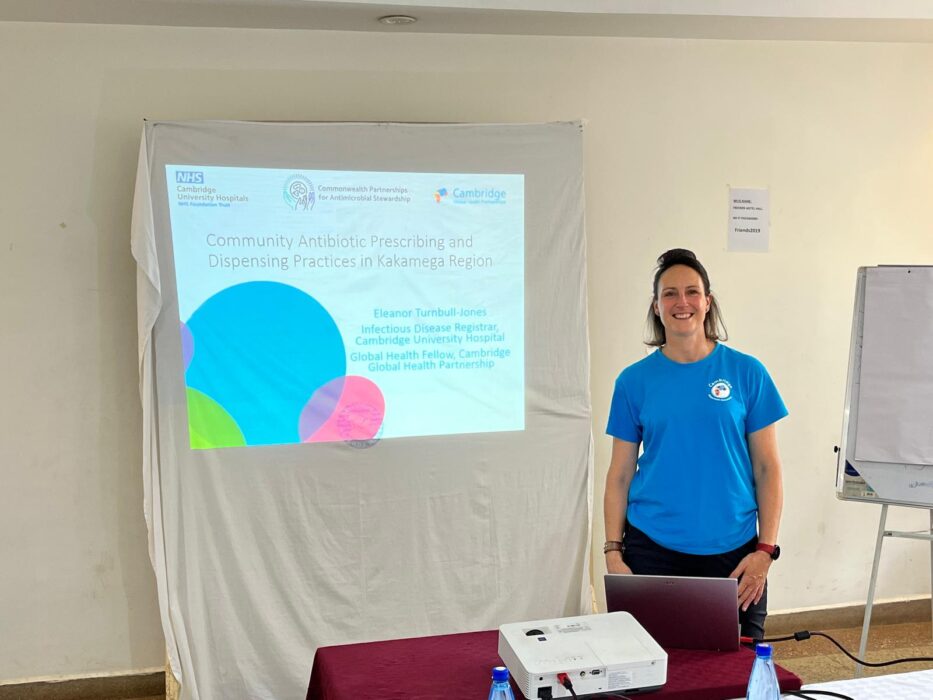
My role and impact
The project was originally designed by my colleague, Susannah Langtree, who started maternity leave during the fellowship year. I subsequently took over the activities leading up to and during the visit, including visiting and introducing the study and the data collecting tool to the community pharmacies. I also consented them to take part and followed up with them daily to prompt them to continue their data collection. I analysed the data and presented the results at the end of the week to between 30-40 community pharmacists from the region, at the Pharmaceutical Society of Kenya’s monthly meeting.
I used my AMS knowledge gained through my Infectious Disease training to analyse the results and correlate these with clinical significance and meaning.
My most important input was having the time in the country to be able to visit all of the pharmacies. This allowed me to spend time explaining the rationale behind the study to all the pharmacists in person so that they felt comfortable participating and understood that the data being collected was anonymous. This enabled the pharmacists to be open and honest in their data collection, as they were informed that the data could not be linked back to their pharmacy. Prior to our visit our local partners had attempted to introduce the study and start the data collection process by phoning pharmacists but there had been little uptake as pharmacists were concerned that the data would be passed onto the pharmacy regulatory boards and they might face negative consequences if shown to be doing something ‘wrong’.
This has been a fantastic opportunity to get involved with and lead projects in global health work which has widened my horizons and my professional network.
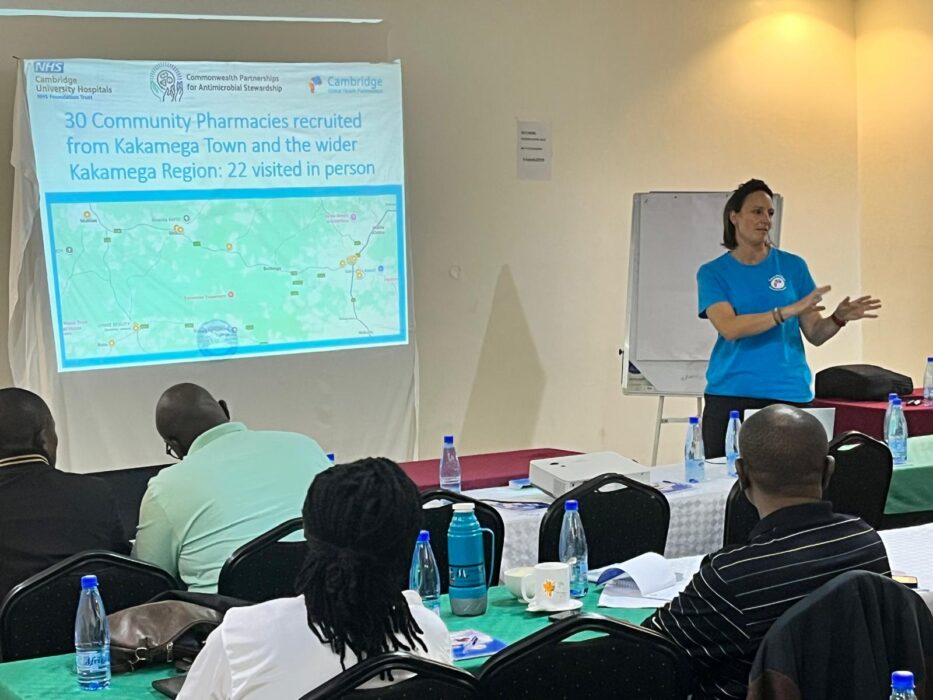
Challenges and rewards
It was challenging planning activities prior to the visit between the UK and Kenya partners. I realised belatedly that culturally it was not appropriate for our colleagues in Kenya to say “no” to our suggested activities or plans, even if they felt this would not work on the ground. This meant that sometimes there was a communication gap between what we thought could happen versus what was logistically possible on the ground. We overcame this with further videocalls and face to face meetings on arrival in the country.
I found the project to be rewarding and satisfying, particularly when I could see the database expanding as the pharmacists entered the data via the Google forms, and knowing the pharmacists were on board with the study and completing the data collection as planned.
In addition, I hugely enjoyed getting to see the wider region of Kakamega through visiting community pharmacies outside of the region. With our partners we also visited Kakamega Forest, the tea plantations and the seat of the tribal King. Working alongside our partners everyday gave me an opportunity to get to know the local cultures and customs and an understanding of the reality of working in the region and the challenges that community pharmacists face in their fight against antimicrobial resistance.
Personal and professional development
This experience has developed my communication skills with those who do not have English as a first language. It has strengthened my leadership skills, my team building skills and encouraged me to think outside the box.
It’s also strengthened my knowledge of AMS and of microbiology, which is applicable to my training in Infectious Diseases. I have not yet started the Microbiology part of my training, which begins in January, and as such I have developed my knowledge and skills in this area ahead of the game!
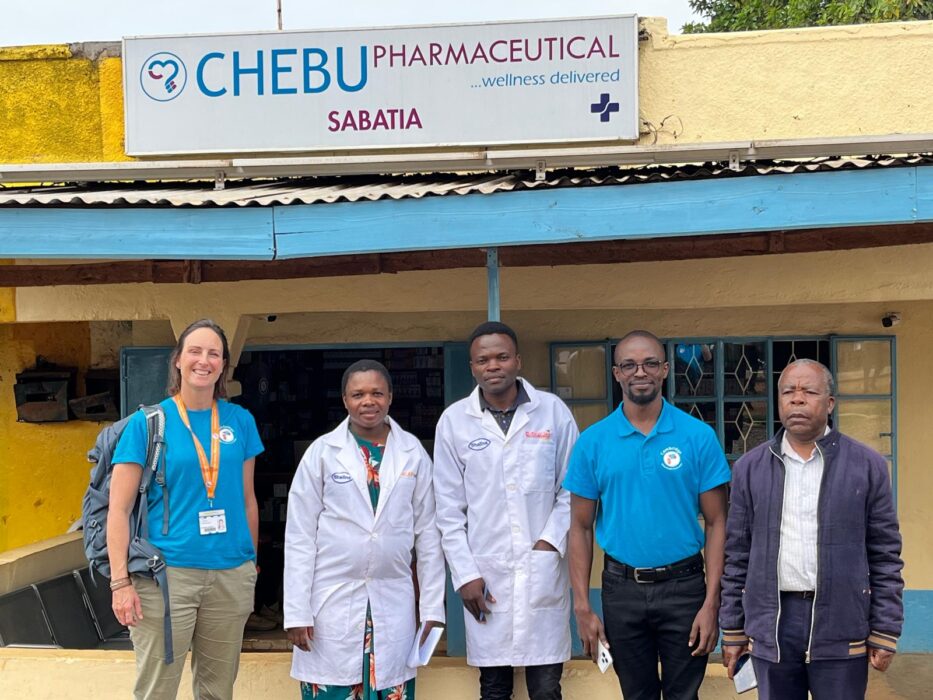
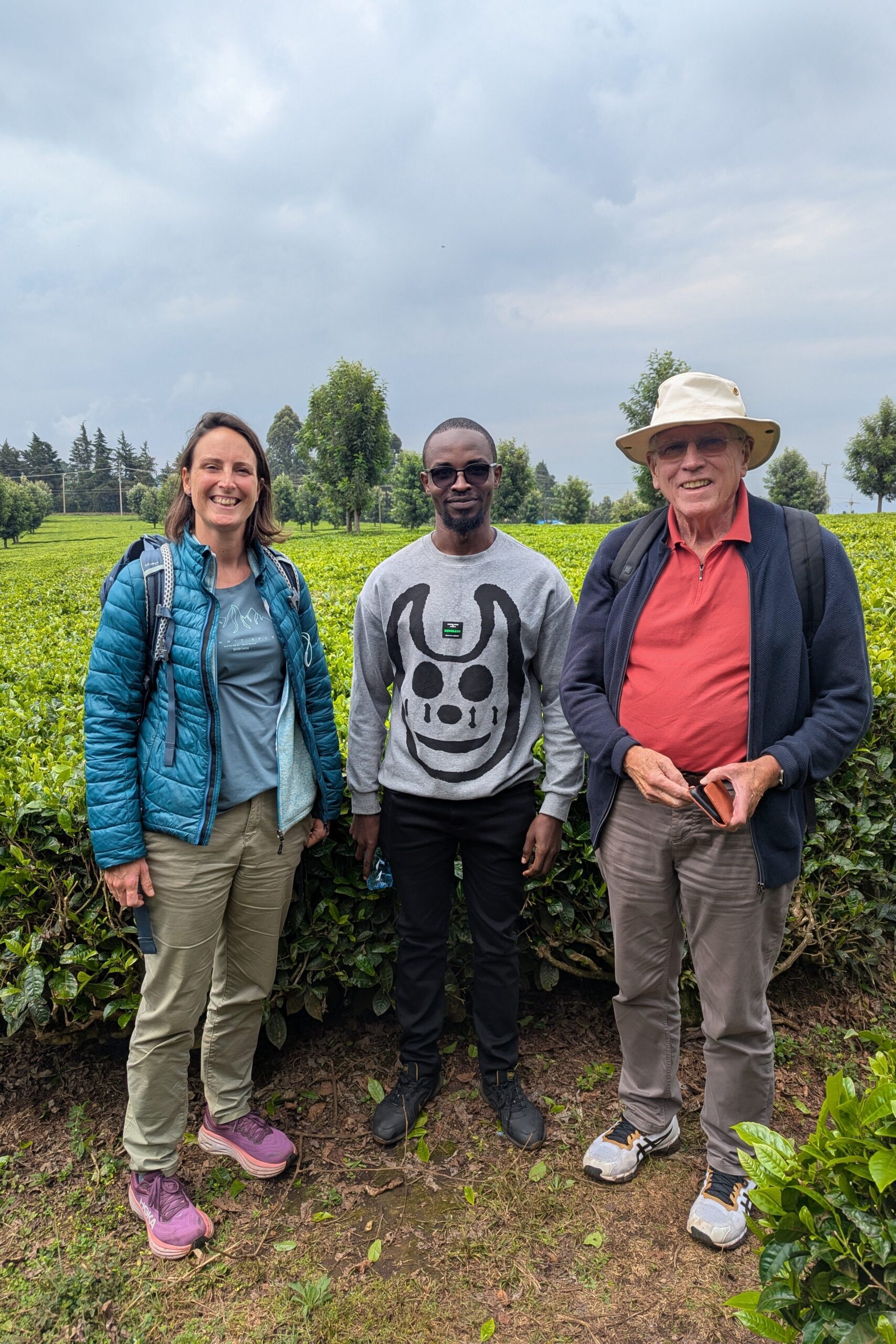
Making longer term changes
This study has revealed some key AMS gaps that need addressing in the region, which have been fed back to the relevant authorities in the region and staff on the ground. I hope that the impact on the healthcare staff – of recognising how to improve AMS – will have the expected knock-on effect of improving healthcare for patients. For example, patients are not prescribed unnecessary antibiotics for upper respiratory tract infections, are encouraged to take the full course of antibiotics when these are clinically appropriate, and for pharmacists to consider the antibiogram data from the region (which was presented to them during our workshop) when prescribing empiric antibiotics so as to reduce the likelihood of resistance occurring.
There are a lot of similarities related to antibiotic prescribing in our UK hospitals. I have noticed that when patients are admitted through the emergency department, they are all given the same broad spectrum antibiotics. Lessons learnt during this visit could be applied to AMS teaching at Addenbrooke’s to improve AMS in the hospital.
Final reflections
This has been a fantastic opportunity to get involved with and lead projects in global health work which has widened my horizons and my professional network.
I hope that I can continue to support Kakamega with their AMS work in the future so that they can continue to grow into an AMS centre of excellence, which they are aspiring to be. I hope that there will be a new CGHP fellow who can take over this project and progress it to the next level.”
Find out more about the Global Health Fellowship programme or contact us at info@cghp.org.uk
Return to blogs

